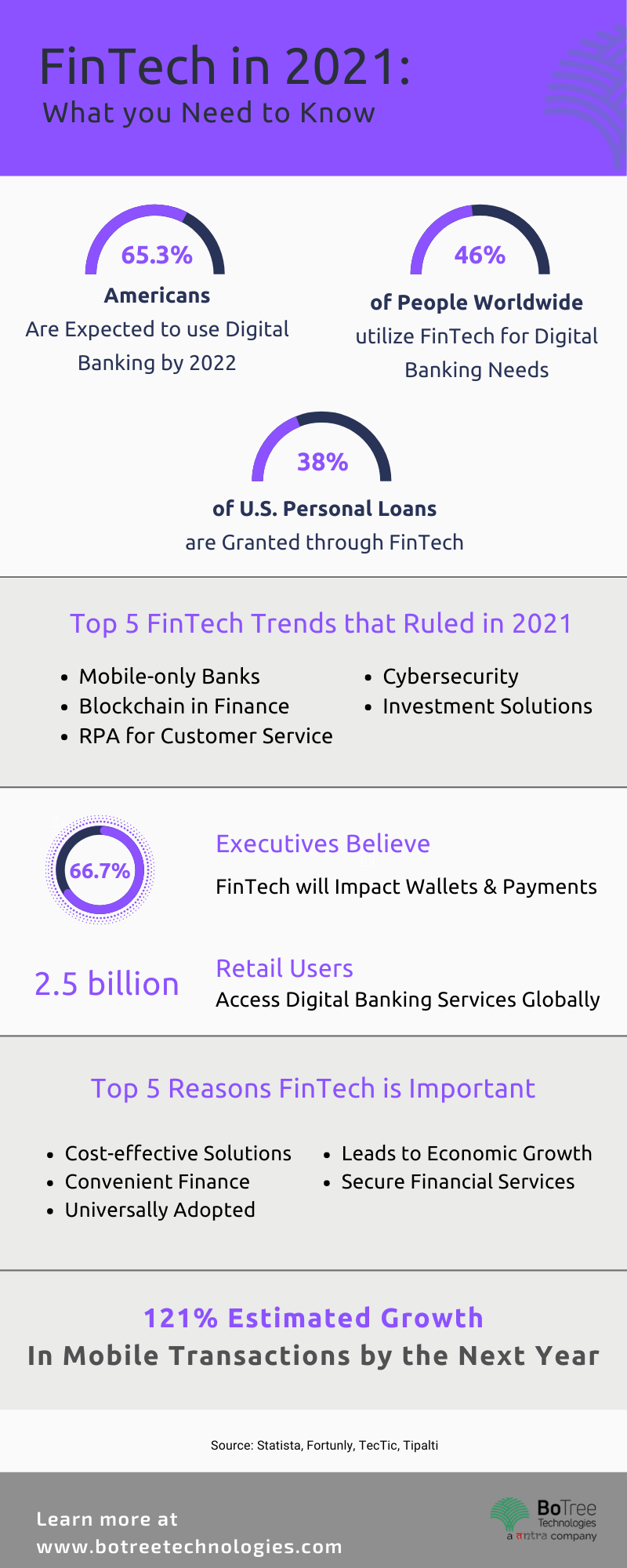
6 Key Challenges That Highlight the Urgency of FinTech Modernization
One thing that banks and insurers can surely agree on is the need to modernize their organizations for the present time. A large chunk of the clientele for both types of business—comprising individual consumers and corporate clients—have very high expectations for how their financial assets are managed. Clients also demand that a wide range of financial services be made available to them through the most convenient channels. It only makes sense to invest in new technologies and to innovate business workflows in order to accommodate these rising standards.
However, many businesses that fall under either category have a hard time deciding where to direct their initial modernization efforts. Banks may lean towards using technology to develop new account or loan products, while insurers may be eager to expand their lines for life insurance, home insurance, auto insurance, or liability insurance. While it is understandable for both banks and insurers to direct their attention towards profit-generating activities, it may actually be wiser for these businesses to prioritize their FinTech modernization. FinTech app development services should now be a priority rather than an alternative.
If you’re a business leader in either a bank or a non-bank financial institution, consider the urgency of adopting modern finance processes that involve integrated finance, improved financial data analytics and reporting, comprehensive data governance for compliance, financial risk management, and the like.

Below are six pressing challenges that FinTech modernization can help you address.
Outdated Legacy Systems
A pain point that both banks and insurance carriers may have in common is their legacy systems for implementing financial transactions. A closer examination of these systems may reveal solutions that are, at best, holding these companies back or, at worst, actively sabotaging their growth.
If you can trace problems like backlogs in your financial reporting to your legacy system, it may be time to move to a system that will heighten your overall efficiency with your company’s financial processes. A financial institution like yours would benefit from a cloud solution that guarantees 24/7, 360-degree visibility, and extensive automation for rote financial tasks. Any FinTech software development company could create such a solution that could streamline finance-based operations.
Read more: 7 Top FinTech App Ideas for Startups in 2022
Siloed, Fragmented, and Inefficient Data Management
In the world of finance today, data holds immense power. It’s not only used to generate business insights, it’s also relevant in regulatory reporting, risk management, customer acquisition and retention, and driving performance. The ever-changing needs of financial institutions constantly pick up speed, too, and if they lack the ability to make proactive and speedy decisions based on business data because their resources have to contend with the day-to-day upkeep and the patchwork involved in attending to dynamic global and regulatory requirements, they could feel the crunch down the line.
FinTech modernization presents an opportunity for financial institutions to build things on better, more solid ground. With a data management system that provides a single source of truth, a bank can hire FinTech developers who can eliminate data silos and take advantage of standardized and reconciled data that will afford them the accuracy and efficiency they need to be more forward-looking and to be more profitable. More importantly, they’ll be able to do this themselves without relying heavily on third-party consultation as they may have been accustomed to do in the past.
Limited Perspective for Financial Decision-Making
Both banks and insurers generate profit from being financial intermediaries for consumer or corporate clients. A large part of fulfilling this duty involves the execution of timely and responsive decision-making over the assets the company is in charge of. Sadly, many banks and insurance carriers implement major decisions without a complete data picture of their financial situation. For either type of organization, this lack of foresight can be costly to the growth and reputation of the business.
Investing in FinTech modernization will do more for a company than increase its efficiency at handling financial processes. It will also help the company adopt a more data-driven approach that’s sensitive to real-time financial trends and industry developments. Whether you work in banking or in insurance, the depth of your perspective will be of key importance to your financial decision-making.
Stiff Competition within Your Home Sector
Another urgent driver of FinTech modernization is stiff competition all throughout the finance industry. While insurers have to compete with both new and storied players within their sector, banks must distinguish themselves from other banks and from contemporary players like fintech. Either way, customers will flock to organizations that can deliver a reliable standard of service through the most innovative and convenient means.
A modernized system for implementing financial processes will improve the company’s performance with customers as well as employees. If both individual and corporate clients get the impression that the company’s finance system is organized, well-managed, and up to the times, there’s a higher chance that they will pledge their loyalty to that institution over a competitor.
Checkout Top 7 Global FinTech Trends in 2022
Increased Regulatory Pressure
Companies in the banking and insurance sectors also have to contend with regulatory requirements from their respective regulators. Compliance has never been a very easy task, and with the sheer number of developments happening in either industry—whether political, economic, or technological in nature—compliance requirements are bound to get even more difficult by the year.
Modernizing financial processes that have to do with regulatory reporting—such as audits and financial documentation—through FinTech application development would be extremely advantageous to your company. The resulting improvements in your compliance efforts will reduce your company’s spending on hefty compliance-related penalties and, in the long run, cultivate the esteem of your regulators.
Increased Market, Credit, and Liquidity Risk
Many banks and insurers make use of sophisticated statistical and mathematical methodologies to manage enterprise risk, but in recent years, the limitations of these tools and techniques have been experienced by many financial institutions. Clearly, there is a need for more modernized solutions that can help financial institutions better identify drivers of both profit and cost and to better forecast future trends. By improving the way risk is measured, reported, managed, and alleviated, banks and insurers can make better business decisions and augment business value like never before.
Ideally, the move to finance modernization using custom application development services should include the adoption of more sophisticated software that straddles market, credit, liquidity, interest rate, and other types of enterprise risk, providing the organization with a highly integrated and global view of their overall performance and risk portfolio. Again, it is important for a financial institution to take advantage of solutions that centralize and aggregate risk data from many areas of the enterprise, adopting a consolidated financial services data model and a unified analytical infrastructure for a more comprehensive, more data-driven risk assessment paradigm.
Final Words
Any company operating within the banking or insurance sector would be worried about their future prospects. Factors like the COVID-19 pandemic and the resulting economic crisis have led organizations to seek drastic improvements within their systems and to step up in their quest for growth. The difference between growth and deterioration may lie in a company’s choice of what to prioritize. Based on the arguments detailed above, a FinTech modernization may be worth putting above other modernization efforts, and the need to hire the best FinTech app developers is imminent.
The clearest path towards profitability and longevity for your own organization may lie in strengthening your system for your financial processes. Take the steps to modernize it today, and you will be ready to navigate a challenging financial future.




